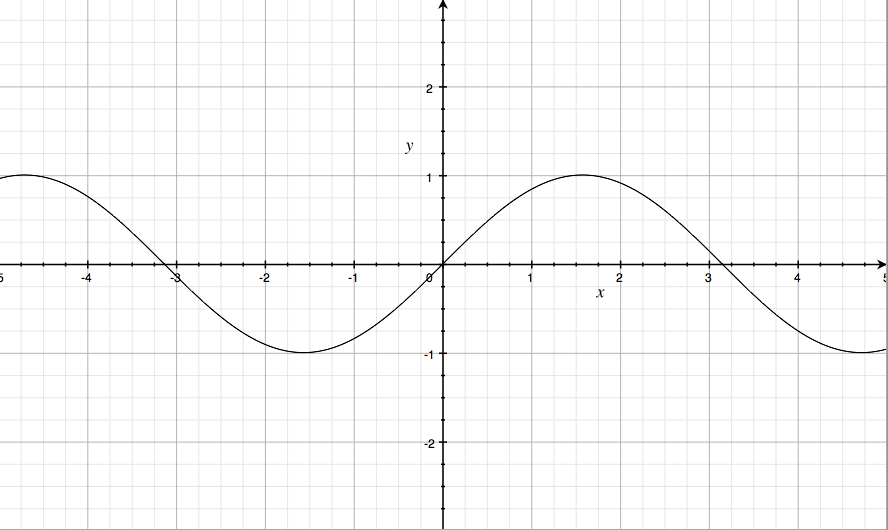Periodic versus non-periodic functions (hw1, ECE301)
Read the instructor's comments here.
A continuous time signal x(t) is periodic if there exists T such that x(t + T) = x(t) for all t.
A discrete time signal x[n] is periodic if there exists some integer N such that x[n + N] = x[n] for all n.
Periodic Signal
Let x(t) = sin(t), as seen below.

For x to be periodic, there must be a T such that x(t + T) = x(t) for all t.
Since the sine wave repeats itself every π, it is periodic.
Non-Periodic Signal
Let $ x[n] = e^{jn} $.
For x[n] to be periodic, there must be an N such that x[n + N] = x[n].
This only holds true if $ N = 2\pi $ or some multiple of $ 2\pi $
Thus $ x[n] = e^{jn} $ is not periodic because $ 2\pi $ is not an integer.

